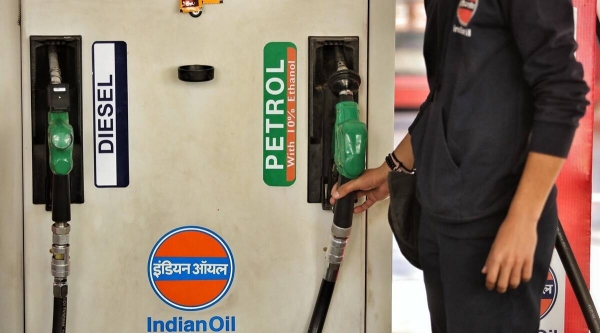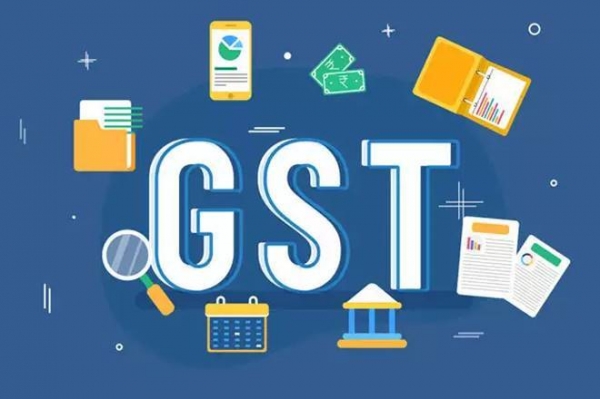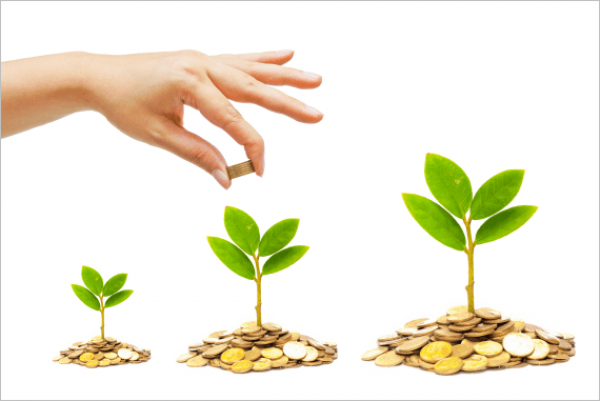How GST on petrol, diesel will bring down prices - Business2Business
Thus, a liter of petrol in Delhi costs Rs 101.19 and a diesel costs Rs 88.62. Similarly, the price of petrol in Mumbai, Chennai and Kolkata was unchanged at Rs
- by Gaurav Grover 2021-09-17 06:32:24
New Delhi: Rising petrol and diesel prices have repeatedly raised the question of whether their incorporation into the Goods and Services Tax (GST) system will benefit consumers.
The much discussed and speculated issue could finally come to an end on Friday when the 45th GST Council meets in Lucknow.
For the first time in 20 months, the GST Board will hold a physical meeting. After December 18, 2019, all GST Board meetings were held in virtual mode.
"We're not saying we should include petrol and diesel in GST immediately, we're basically asking states to suggest a timetable," a government source told, ahead of Friday's crucial GST council meeting.
When GST was introduced in July 2017, five commodities (crude oil, natural gas, petrol, diesel, aviation turbine fuel (ATF)) were kept outside the scope of GST, taking into account revenue dependency from central and state governments.

Current price of petrol and diesel
With demand picking up, the recovery in global oil prices pushed petrol and diesel prices to all-time highs, prompting demand to subject them to GST.
Fuel prices have remained at record levels due to 41 increases in retail prices since April of this year.
However, since the past 11 days, there has been no adjustment in petrol and diesel prices, as Oil Trading Companies (OMCs) have kept their control over the world oil prices.
Thus, a liter of petrol in Delhi costs Rs 101.19 and a diesel costs Rs 88.62.
Similarly, the price of petrol in Mumbai, Chennai and Kolkata was unchanged at Rs 107.26, Rs 98.96 and Rs 101.62 per liter respectively.
The price of diesel has also not changed. In Delhi, Mumbai, Chennai and Kolkata, the fuel was sold for Rs 88.62, Rs 96.19, Rs 93.26 and Rs 91.71 per liter respectively.
Prices will either remain largely unchanged or get some relief from the cut in the coming days as global oil is expected to weaken again.
The Organization of the Petroleum Exporting Countries and its allies have agreed to gradually increase production levels, which will prevent prices from rising.

How will prices change after GST
If the GST Board decides to cover fuel prices under its system, there will likely be a maximum tax of 28 percent on the base price of petrol and diesel in all states.
This means that the different tax and value-added tax rates that the center and states used to tax fuel prices will be replaced by the standard GST rate across the country.
Currently, in Delhi, the base price of petrol is Rs 40.78, including transportation costs, the amount allotted to distributors is Rs 41.10. This is the base price of petrol in Delhi, according to the Indian Oil website.
To this we add the excise tax of Rs 32.90, the merchant’s commission Rs 3.84 and the VAT on the merchant’s commission Rs 23.35. Calculating the total, we get the retail price of petrol in Delhi, which is Rs 101.19.
Now, if price regulation starts under the Goods and Services Tax (GST) system, this special tax (which is center sharing) and VAT (state participation) will be abolished and 28 percent GST will be applied to the resulting base price. be 11.50 rupees. For this, we will add the dealer's commission of Rs 3.84 and the retail price of our petrol to Rs 56.44.
Similarly, for diesel, the rate charged to dealers is Rs 41.27 in Delhi, according to the Indian Oil website. If we calculate under the new system, the price will fall to Rs 55.41 from Rs 88.62 today.
In the same way, a liter of petrol in Karnataka currently attracts a tax of Rs 59 - Rs 32.9 Central Special Additional Tax (AED) and 35% government sales tax on the sum of the base price (Rs 41,8) and AED. Under GST, the retail price will drop from Rs 104.7 per liter to Rs 59.2 (inclusive of the merchant’s commission of Rs 3). The price of diesel will drop from Rs 94 a liter to Rs 50.
A similar scenario can be observed in all states.

Impact on government revenue
Given the dependence of central and state government revenue on taxes collected on petrol sales, it would be a difficult decision for the GST Board.
Central consumption tax and state value-added tax (VAT) account for nearly half of the retail price of petrol and diesel. Its status under the GST will affect revenue generation for states.
This 28 percent tax, which will be applied to distributor prices, will be shared between the Center and the States in equal proportions.
Despite the drop in sales due to the pandemic, the center's tax collection on petrol and diesel in 2020-21 increased by 88 percent to more than Rs 3 crore.
The center increased the tax fee by 13 rupees per liter on petrol and 16 rupees on diesel between the end of March and May 2020, when oil prices fell due to the pandemic.
As a result, diesel collection doubled to Rs.2.3 crore from Rs.1,12,032 crore in 2019-20. Petrol cleaning increased by 53 percent to over Rs 1 crore from Rs 66,279 crore in the fiscal year prior to the pandemic, the government reported to Lok Sabha earlier this year.
Thus, the states, which have the largest share of tax revenue today, would be the biggest losers if the system switched to a GST.
Why are countries against including fuel in the GST?
The center and the states collectively collect more than Rs 5 crore in petroleum product taxes annually. It will not be easy to introduce petrol and diesel under the GST regime, as the states collectively will suffer an annual revenue loss of Rs 2 crore, Sushil Modi, BJP leader Sushil Modi told the Rajya Sabha while participating in a discussion on the 2021 Finance Bill.
Speculation about a GST on petroleum products has been met with opposition from certain countries.
Maharashtra Deputy Minister Ajit Pawar said the state government was against any move to infringe on their rights to collect tax and he would make his point clear at the GST Board meeting.
“We still have to get Rs 30 crore to Rs 32 crore of our share of GST refund. Apart from excise tax and stamp duty, the largest source of state government revenue comes from GST,” he said.
Similar concerns were voiced by Kerala Finance Minister K N Balagopal, who said the state would strongly oppose, if there were any measures to bring petrol and diesel into the GST system.
According to him, if petrol and diesel are subject to the GST regime, the country will lose 8 billion rupees annually.
Karnataka, which is governed by the BJP, has decided to oppose the proposal, as its average monthly income is expected to fall from the current Rs 1,500 crore to Rs 600 crore if the GST change takes place.
What do the experts say?
Some experts believe that in the current situation of the Covid virus, bringing petroleum products into the GST will be a very difficult decision for both the center and the states "as they both lose"
Rajat Bose, partner at Shardul Amarchand Mangaldas and Co, told ANI news agency, “The introduction of petrol and diesel into the GST realm will help the industry as it will lower the cost. Currently, consumers are paying a lot of VAT (Value Added Tax) as excise duty. , but once you incorporate it into the GST, prices will go down.”
“It is a difficult task for the council, given that many countries may not agree with this proposal, because that is the main source of revenue for states. And if it is introduced into the world of GST, they will have to share that with the middle.”
Anil Gupta, managing director of Okaya Power Group, also told ANI that the GST was 5 percent on electric vehicles, but for items like batteries, the e-loads are 18 percent.
"It would be great if the GST Board corrects this inverted rights structure. We welcome any decision that is made in favor of the entire electric car industry," Gupta added.
Also Read: McDonald’s Marketing Strategy That Has Made It A Global SuccessPOPULAR POSTS
GST 2.0 Rollout Begins: New 5% & 18% Tax Slabs, Cheaper Essentials, and Helpline 1915 Explain
by Shan, 2025-09-22 10:20:19
GST Overhaul Explained: New 5% and 18% Slabs, 40% Tax on Luxury Goods
by Shan, 2025-09-04 11:53:34
Modi’s Diwali Gift: New GST Rates Slash Prices on Electronics, FMCG & More
by Shan, 2025-08-21 12:28:30
Jio Finance Launches Income Tax Filing at ₹24: How to File ITR Easily in 2025
by Shan, 2025-08-13 10:08:52
Income Tax Bill 2025: Lok Sabha Panel Backs Deductions for Late Filers
by Shan, 2025-07-22 12:28:58
Karnataka GST Crackdown: Why Shopkeepers Are Ditching UPI Payments
by Shan, 2025-07-16 12:14:56
GST Council Likely to Consider Lowering Tax on Online Food Delivery Fees
by B2B Desk, 2024-12-17 08:26:30
RECENTLY PUBLISHED

Loan EMIs to Drop as RBI Slashes Repo Rate - Full MPC December 2025 Highlights
- by Shan, 2025-12-05 11:49:44

Pine Labs IPO 2025: Listing Date, Grey Market Premium, and Expert Outlook
- by Shan, 2025-11-05 09:57:07

The Agentic Revolution: Why Salesforce Is Betting Its Future on AI Agents
- by Shan, 2025-11-05 10:29:23

Top 10 Insurance Companies in India 2026: Life, Health, and General Insurance Leaders Explained
- by Shan, 2025-10-30 10:06:42

OpenAI Offers ChatGPT Go Free in India: What’s Behind This Big AI Giveaway?
- by Shan, 2025-10-28 12:19:11

Best Silver Investment Platforms for 2025: From CFDs to Digital Vaults Explained
- by Shan, 2025-10-23 12:22:46




 Subscribe now
Subscribe now 